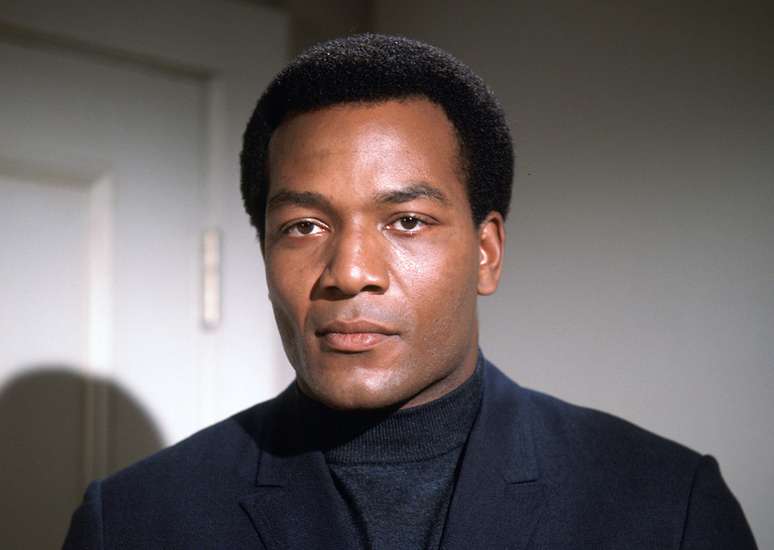Actor and athlete Jim Brown passed away peacefully at the age of 87 this Thursday (5/19) at his home in the city of Los Angeles. The news was announced by his wife, Monique, on his Instagram profile. She posted a short text in honor of her husband, saying the family is heartbroken. The cause of death has not been disclosed.
A football legend and movie icon, Brown was one of the NFL’s top players, setting a string of career highs during his nine seasons as quarterback for the Cleveland Browns.
In parallel, he decided to follow in his footsteps in cinema, also making his mark in iconic films. Among them is “The Dirty Dozen” (1967), which serves as the inspiration for several feature films to date, including “Inglourious Basterds” (2009), by Quentin Tarantino, and “The Suicide Squad” (2021), by James Gunn.
Brown was a pioneer as an African-American action star, paving the way for other black performers in Hollywood. Although actors Sidney Poitier, Sammy Davis Jr. and Bill Cosby were on the screens before him, Brown was one of the first to star in major studio action films in the 1960s. In addition, he was extremely active in the rights movement civilians of blacks in the United States, inspiring those who sought to excel in the predominantly racist society of the time.
With his charismatic presence as his hallmark, he has become a lucrative presence in Hollywood, appearing in a number of hits such as ‘Survivor’ (1987), ‘Mars Attacks!’ (1996) and “Any Given Sunday” (1999).
His first screen project was the western ˜Rio Conchos’ which was released in 1964. Three years later, the hit ˜Os Doze Condenados’ came and he finally started his acting career.
Robert Aldrich’s film released in 1967 told the story of a military unit made up of convicted criminals who are recruited for a suicide mission during World War II. With the promise of reduced or canceled sentences if they survive the mission, they have set out to assassinate high-ranking Nazi officials in a fortress in France. The cast was something of a “Fast and Furious” at the time, bringing together a selection of movie machos, such as Lee Marvin, Ernest Borgnine, Charles Bronson, Telly Savalas, Donald Sutherland, Richard Jaeckel, Clint Walker, John Cassavettes and even the singer Trini Lopez.
Jim Brown played Robert T. Jefferson, one of the “Damned Twelve”. The character was an African-American soldier convicted of killing a white soldier in self-defense during a racial altercation. Throughout the film, Jefferson becomes a key player in carrying out the mission and is responsible for throwing the grenades into the Nazi officers’ bomb shelter. However, he ends up badly wounded and, while trying to escape, is killed by German soldiers, but not before detonating the explosives, ensuring the success of the mission. Among so many famous stars, his performance is often remembered as one of the most outstanding performances in the film.
Thanks to the repercussion of “The Dirty Dozen”, Brown starred in as many as four films the following year, all action: “The Expendables” (1968), “The Avenger of Bombay” (1968), “Panic Gang” ( 1968) and “Polar Zebra Station” (1968).
With the violent drama “The Prisoners” (1969), starring Gene Hackman, Brown showed himself ready for more demanding roles. And in the western “100 Rifles” (1969) he made history together with the actress Rachel Welch, protagonist of the first interracial sex scene in the cinema.
He shook Hollywood standards again in “The Sheriff of Exploding City” (1971), where the black sheriff of a racist city lived. And he soon became involved in the blaxploitation scene of the 70s, crime films with black leads, living in “The Black Punisher” (1972). In the best feature of that phase, “Redless to Hell” (1974), he joined Jim Kelly (“Enter the Dragon”) and Fred Williamson (“The Godfather of New York”) as martial arts specialists preventing supremacists whites from contaminating the US water supply.
The success of “Relentless to Hell” turned Brown into an international star, as the Italian industry reunited him with Kelly and Williamson in the spaghetti western “Cavalgada Infernal” (1975), by maestro Antonio Margheriti. To complete a trilogy, the trio even reunited in “Blood Revenge” (1981), a crime film directed by Williamson, which also starred Richard Roundtree (Shaft).
Brown made guest appearances in several series in the 1980s, from ‘The Super Machine’ to ‘The A-Team’, before returning to feature films in the sci-fi classic ‘The Survivor’ (1987), in which he co-starred with Arnold Schwarzenegger.
He then participated in the comedy “Vou Te Pegar Otário” (1989), a parody of the blaxploitation movement created by Keenen Ivory Wayans (“As Branquelas”), who was a big fan of the genre. And she also tried to revive the genre in “Street Punishers” (1996), again alongside Williamson and, this time, Pam Grier (Jackie Brown).
That same year, there lived a former boxing champion who proves himself a reluctant hero in “Mars Attacks!” And, soon after, he co-starred with Denzel Washington in “Decisive Play” (1998), directed by Spike Lee. This meeting eventually inspired the famed director, known for exploring racial issues in his films, to make a documentary about Brown’s career. “Jim Brown: All-American” was released in 2002.
In the meantime, however, his life has suffered a setback. In 1999, the year of his last hit, Oliver Stone’s sports drama “Any Given Sunday,” the actor was convicted of vandalism for destroying his wife’s car with a shovel. Faced with options for domestic violence counseling, community service, and probation, he chose to serve out his sentence, spending months in prison. The case was added to several others, including assault and rape charges. More often than not, the charges were dropped or the victims refused to press charges. But the scandals rocked his career.
Brown continued to make film appearances, but in video market productions. His big comeback to commercial cinema was also his last big screen role, playing himself in the sports drama ˜The Big Choice’ (2014), from director Ivan Reitman.
In addition to his sports and film career, Jim Brown has also left his legacy as an entrepreneur. In the 1960s he founded the Negro Industrial and Economic Union, later renamed the Negro Economic Union, to support black business. He also founded the Amer-I-Can program in 1988, an organization that helps children caught up in gang violence in Los Angeles and Cleveland by equipping them with life management skills.
Source: Terra
Rose James is a Gossipify movie and series reviewer known for her in-depth analysis and unique perspective on the latest releases. With a background in film studies, she provides engaging and informative reviews, and keeps readers up to date with industry trends and emerging talents.


![Such an excellent sun in advance: Summary of Episode of Thursday May 15, 2025 [SPOILERS] Such an excellent sun in advance: Summary of Episode of Thursday May 15, 2025 [SPOILERS]](https://fr.web.img4.acsta.net/img/a5/6e/a56eb63e1996ac616cf03c2201201e58.jpg)





